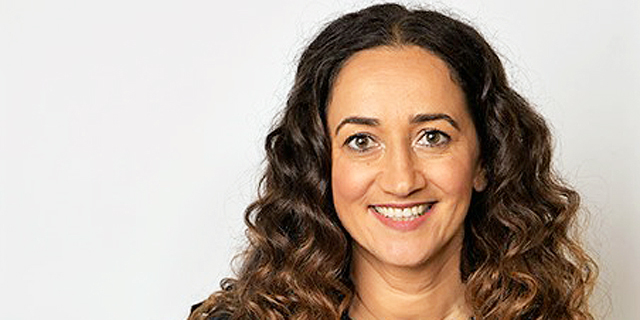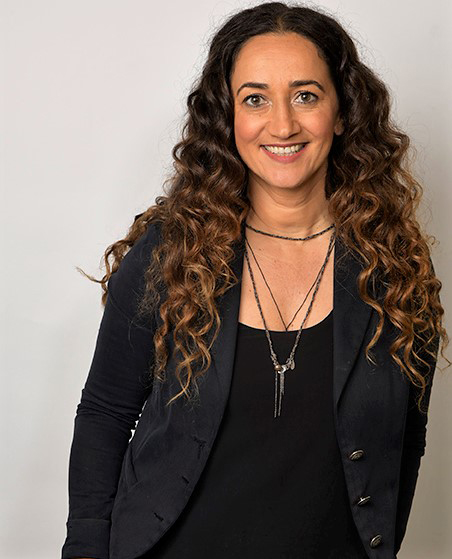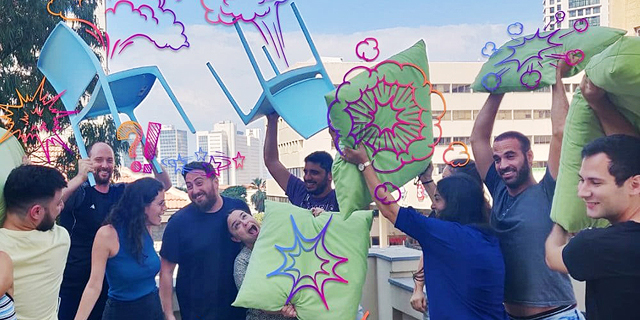
HR Post Covid
The 3 layers that affect human capital during Covid-19, according to Minute Media’s Chief People Officer
Continuing our Post-Covid HR series, Liat Shahar joins CTech to outline three challenges that impacted human capital at Minute Media
Post-Covid HR is a CTech series in which HR managers at Israeli high-tech companies share their insights on how they maintained a routine in such an unconventional period. How they face the challenges posed by the coronavirus, how they have invented new activities for employees, managers and companies and what they will take with them from this period even as the corona fades from our lives.
Shahar joined CTech to discuss the ways that Minute Media tackled these challenges - highlighting three specific ones that the company knew it had to overcome.Company name: Minute Media
HR Leader: Liat Shahar, Chief People Officer
Field of activity:
Minute Media aims to deliver the most scalable and innovative publishing platform on the internet, serving millions of passionate fans and powering a global portfolio of digital content brands and partners.
Number of employees/location: 350 employees located in offices around the world: Israel, England, US, Brazil, Japan, and Singapore
Professional background of HR manager:
I joined Minute Media four years ago and had an amazing opportunity to be part of the company during its hyper growth phase, when we grew from 150 to 350 employees through hiring and mergers and acquisitions.
I have 25 years of experience in the HR arena that includes both large-scale high tech companies such as Intel, and start-up companies that grew into mid-size organizations such as Zend Technologies and Minute Media.
Today, more than ever, I believe that people should bring their true self to work. Each one of us has a unique story as well as aspirations, allowing us to do things in our own special way. As a leader at Minute Media, I would like to do whatever I can to develop inclusive leadership and a supportive culture that enables growth for each one of our employees - in the way that fits them personally.
On a scale of 1-10, how much did the coronavirus pandemic disrupt HR operations at the company?
I would say 2 since I’m not sure that the word “disrupt” is the correct word.While the coronavirus pandemic entirely changed the way we work, it provided an opportunity for HR to leverage an even greater amount of people programs and practices. I believe that the changes that have been forced all over the world became an accelerator for one of the greatest workplace transformations in the high tech work environment. If companies couldn’t originally imagine keeping their start-up/high tech DNA while working from home, today it is clear that tech teams can be highly effective while working remotely.
Nevertheless, I believe that the long term approach should be a mix between working from the office and working from home. This will enable the right balance to maximize effectiveness and creativity while reducing burnout and keeping the cultural aspects that are important for employee’s engagement and innovation over time.
More from Tech@Work
In Israel, we are currently working in an open office mode. This means that the office is open three days a week, and employees can choose whether they will be working from the office on those days. So far, we have seen that up to 15% of our Israeli employees choose to work with their team members face-to-face and use the time for brainstorming and in-person meetings. We believe this hybrid model is important to keep the balance between Work From Home - enabling focus, low stress, high productivity and safety - and face-to-face time - enabling personal communication and effective brainstorming while also maintaining the cultural and social elements.
In a way, the pandemic didn’t disrupt HR operations at the company, it just enabled all of us to open our mind to other possibilities and to transform the way we work, communicate, and live our life.
What are the major challenges and impacts of the pandemic and what are the practical HR initiatives the company implemented?There are three layers I would like to mention when exploring the impact of the outbreak on the human capital of the company:
The remote work challenge - adjusting HR processes to a remote work environment: When 350 employees suddenly start working from home, you have to immediately adjust the communication and management processes. The actions we took include providing short term and long term Work From Home practices, allocating budget to enable employees to buy equipment for their home offices, developing leadership capabilities that fit the new normal, and establishing well-being programs that fit the new way of working (weekly fitness classes, mindfulness sessions, mental health programs and team activities such as cooking and more).
The cultural challenge - establishing Task Teams to drive programs related to cultural aspects: During the past six months, the world experienced dramatic events that required us as humans, and as a company, to re-define our strategy and take actions to evolve our culture. Top down solutions that come only from management were not the answer, and we needed to develop methods that enabled employees to have a voice and to lead the strategy alongside the Management Team. Two examples of task teams that we established include:- “Flexible Work Method” Task Teams (in each one of the major sites, across all departments) - This team defined the flexible work methods for the new normal post Covid-19. The team’s recommendation in all locations was to work 2-3 times from home per week post the pandemic, which will be implemented in the future.
- “D&I Task Team” - We kicked off a ‘Power in Diversity’ program (together with Power in Diversity initiative) before the pandemic, and we decided to continue to focus on that on a global level. Together with the Diversity and Inclusion team, we implemented a mental health platform, educational lectures about racism and Black Lives Matter, a charitable donation matching program, and improvements to our diverse hiring practices.
The personal growth challenge - adjusting our Learning and Development capabilities while working remotely: As I mentioned, the flexible work methods are here to stay, and with that in mind, we adjusted our learning and development methods. We accelerated the managerial development workshops and realized that learning on Zoom, while you sit in your home office, can be very effective. We also kicked off a Minute Media Mastery program to enable internal training and growth. The program leverages employee-generated learning by identifying employees with unique skills and having them develop high-level quality training for their colleagues. Those training sessions are open to all employees who are interested in developing or fine-tuning their skill sets in those areas.
What are the two major HR challenges you believe companies are coping with these days due to the long term remote work?
After more than six months of remote work in most sites, I believe that the number one challenge for companies is to find ways to bring informal communication to life.
Since people are working from home, there is limited room for organic interaction that used to happen in the cafeteria, in-between meetings, at off sites, etc. Now that we all work from home, the majority of meetings are planned and happen around structured topics, which may impact employees’ emotional engagement and social relations with people beyond their direct team. One of the methods to bring informal communication to life is a “Roundtable Discussion” in which employees from different teams are gathered to have an open dialogue on non-work related topics led by HR.
The second challenge that is strongly linked to the first challenge is that it becomes harder for people to feel connected to the larger company goals and business strategy.
While working from home, employees have limited interactions with other people from different functions, which impacts the level of transparency and flow of information from various aspects of the business. We have less community driven communication and what we know highly depends on our direct managers and team members, which makes it harder to understand the broader picture.
In order to enhance employees connection to the broader picture, we have leveraged the use of the OKR (objectives and key results) process, and in the last two quarters each team has had an OKR and the CEO, Asaf Peled, has a quarterly meetings with 100% of the teams to review and discuss their key results for the quarter. Additionally, each quarter, 25% of our teams present their OKRs to people who are interested in learning about that area of the business (each of these is a scheduled session with open registration). On top of that, we have monthly site meetings with the CEO where he delivers business updates and does a Q&A session.
